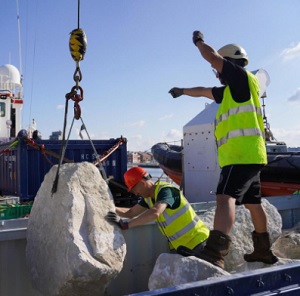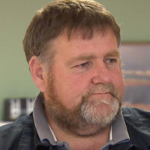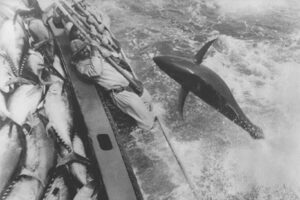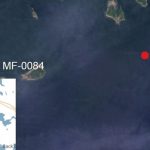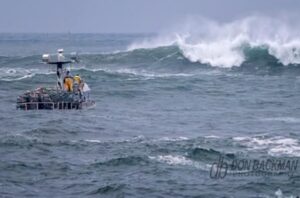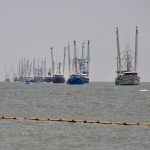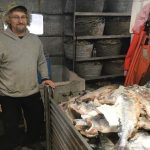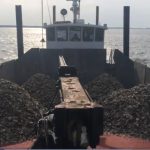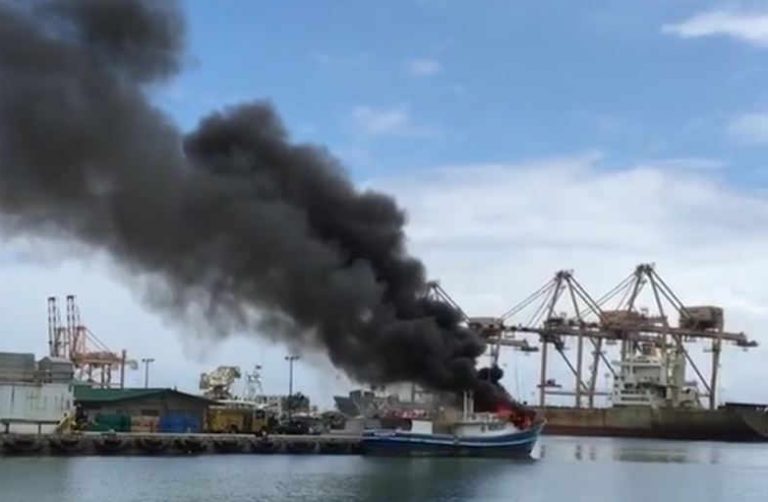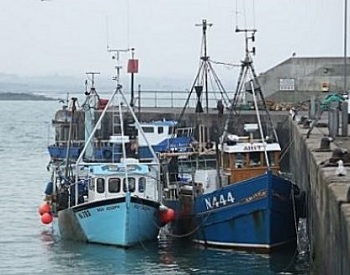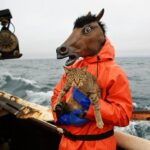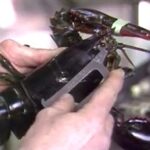Search Results for: Greenpeace
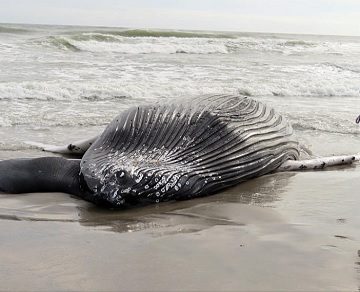
Wind farms creating ‘death zone’ at sea says ex-Greenpeace boss
Drilling foundations for offshore wind turbines and sound pulses used to prepare for the 900-foot towers may be creating a “death zone” for whales, a former Greenpeace chief claims. Patrick Moore, a co-founder of Greenpeace and its ex-president in Canada, believes the acoustic systems used by vessels surveying the ocean floor harm the marine mammals’ sense of hearing, risking their crucial ability to navigate, and leading to more dead whales washing up onshore. At least 36 “large” whales have washed up along the East Coast since Dec. 1, according to data from the National Oceanic and Atmospheric Administration. photos, >click to read< 07:51
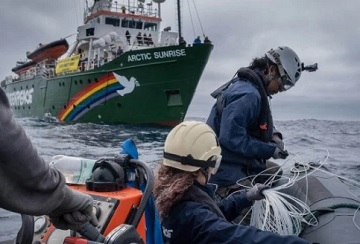
Greenpeace Seizes (Steals) Longline Fishing Gear to Highlight Threat to Sharks
Greenpeace is warning of the effects of industrial longline fishing on shark populations after its activists confiscated fishing gear from two vessels in the North Atlantic, one of which was operating in a Marine Protected Area. The NGO announced that its activists aboard the Arctic Sunrise operating in the North Atlantic waters confiscated 30 kilometers of industrial fishing gear and 286 hooks from two European industrial longline fishing vessels, Segundo Ribeland Siempre Perla. The longliner vessels from Spain were fishing for sharks and swordfish. >click to read< 11:18
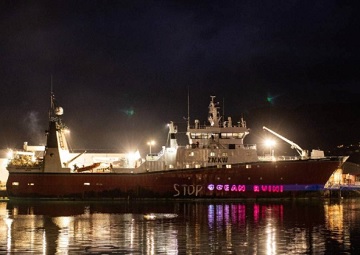
Fire on fishing trawler forces it to drop net at sea, becomes target of Greenpeace vandals
The fire broke out in the engine room of the Talley’s ship Amaltal Enterprise on July 2, while the vessel was trawling more than 35 km off the coast of Greymouth, the company said. The ship was towed back to Port Nelson, where it became the target of an early morning protest on July 6 by Greenpeace activists calling for an end to bottom trawling,,, The fire was extinguished swiftly by Talley’s on-board fire personnel, and the authorities were immediately notified.,, No evacuation of the vessel was required, and none of its 45 crew needed medical attention. >click to read< 13:41
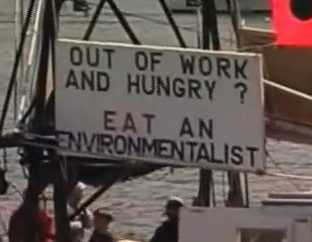
Angry North Sea fishermen dump rocks in front to Greenpeace headquarters
“Fishermen bring back dumped stones,” “dumped stones deadly to fishermen,” and “Greenpeace illegally dumps stones in the sea,” were read on banners and posters hanging on the windows of the Greenpeace headquarters in Amsterdam. In addition to the posters, about twenty to thirty stones were dumped in front of the building. It seems to be a reaction of angry North Sea fishers to Greenpeace. The activists of the environmental organization have, once again, thrown large natural stones into the North Sea. Greenpeace said it would invite the fishermen “for a cup of coffee,,, >click to read< 08:05
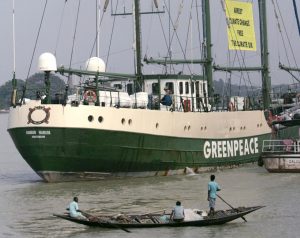
Greenpeace’s iconic “Rainbow Warrior” boat was disposed of in a way the group campaigned against for years.
Greenpeace quietly admitted in November one of its “Rainbow Warrior” boats was “scrapped on a beaching yard in Bangladesh” — a method it spent years campaigning against. “We have made a mistake, one that we have tried to correct,” Greenpeace International, based in Amsterdam, admitted in mid-November, adding it allowed Rainbow Warrior II “to be scrapped on a beaching yard in Bangladesh, in a way that does not live up to the standards we set ourselves and campaigned with our allies to have adopted across the world.” However, the embarrassing admission from one of the world’s largest and most prominent environmental groups flew under the radar of major news outlets. >click to read<15:09
Greenpeace criticises fishing monitor’s connections with industry
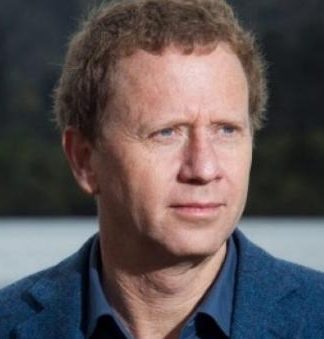 Environmental campaigners Greenpeace will take a complaint to the Auditor General after discovering the company responsible for monitoring large chunks of the fishing industry is wholly owned by the industry’s biggest lobby group. The company, named FishServe, has been contracted by the Ministry of Primary Industries (MPI) for the last 20 years to monitor overfishing, take catch reports, manage quotas and decide on licences. A Greenpeace investigation found the company is not only owned by the industry group Seafood New Zealand, but it operates from the same office and shares staff. The revelations follow a series of controversies last year about fish dumping going unprosecuted, and a contract for camera-monitoring also being given to an industry-owned company. continue reading the story here 09:26
Environmental campaigners Greenpeace will take a complaint to the Auditor General after discovering the company responsible for monitoring large chunks of the fishing industry is wholly owned by the industry’s biggest lobby group. The company, named FishServe, has been contracted by the Ministry of Primary Industries (MPI) for the last 20 years to monitor overfishing, take catch reports, manage quotas and decide on licences. A Greenpeace investigation found the company is not only owned by the industry group Seafood New Zealand, but it operates from the same office and shares staff. The revelations follow a series of controversies last year about fish dumping going unprosecuted, and a contract for camera-monitoring also being given to an industry-owned company. continue reading the story here 09:26
At Last, Greenpeace Admits to ‘Rhetorical Hyperbole’
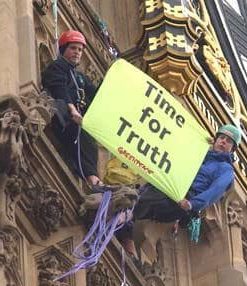 A few years ago Greenpeace and allied groups chose my company, Resolute, Canada’s largest forest-products company, to be their next victim. They compiled a litany of outlandish assertions: We were “forest destroyers,” for example, aggravating climate change, and causing a “caribou death spiral and extinction” in Canada’s boreal habitat. Greenpeace harassed companies we do business with, threatening them with the same sort of smear campaign that they launched against us and even instigating cyber-attacks on their websites. And they bragged about the damage — $100 million, in Canadian dollars — that they claimed to have inflicted on our business. They were lying about our forestry practices, so we did something that none of the group’s other targets have yet found the wherewithal to do: We sued them, in Canada, for defamation and intentional interference with economic relations, and in the United States under RICO statutes. A funny thing happened when Greenpeace and allies were forced to account for their claims in court. continue reading the article here 18:35
A few years ago Greenpeace and allied groups chose my company, Resolute, Canada’s largest forest-products company, to be their next victim. They compiled a litany of outlandish assertions: We were “forest destroyers,” for example, aggravating climate change, and causing a “caribou death spiral and extinction” in Canada’s boreal habitat. Greenpeace harassed companies we do business with, threatening them with the same sort of smear campaign that they launched against us and even instigating cyber-attacks on their websites. And they bragged about the damage — $100 million, in Canadian dollars — that they claimed to have inflicted on our business. They were lying about our forestry practices, so we did something that none of the group’s other targets have yet found the wherewithal to do: We sued them, in Canada, for defamation and intentional interference with economic relations, and in the United States under RICO statutes. A funny thing happened when Greenpeace and allies were forced to account for their claims in court. continue reading the article here 18:35
Greenpeace Criticizes Contracting Onboard Monitoring Cameras and Analysis to Trident
 Should a commercial fishing company be made responsible for monitoring what goes on board the commercial fishing vessels? Greenpeace leader Russel Norman says, it is like “the fox guarding the henhouses”. Greenpeace has criticized Ministry for Primary Industries for rolling out cameras on fishing vessel which is supplied as well as monitored by Trident for the fishing industry. The company is owned by Sanford and thirteen other seafood and fishing companies in New Zealand. The news was confirmed by Nathan Guy, the minister for MPI. So it is clear that indeed the fishing industry is responsible for analyzing the video surveillance that comes from its own trawlers and reports any suspicious behavior to the regulators. Executive Director of Greenpeace New Zealand, Russel Norman says that makes things worse as the government has given out the contract and analyzing task to the industry with Nathan Guy and Prime Minister John Key defending it. link 11:17
Should a commercial fishing company be made responsible for monitoring what goes on board the commercial fishing vessels? Greenpeace leader Russel Norman says, it is like “the fox guarding the henhouses”. Greenpeace has criticized Ministry for Primary Industries for rolling out cameras on fishing vessel which is supplied as well as monitored by Trident for the fishing industry. The company is owned by Sanford and thirteen other seafood and fishing companies in New Zealand. The news was confirmed by Nathan Guy, the minister for MPI. So it is clear that indeed the fishing industry is responsible for analyzing the video surveillance that comes from its own trawlers and reports any suspicious behavior to the regulators. Executive Director of Greenpeace New Zealand, Russel Norman says that makes things worse as the government has given out the contract and analyzing task to the industry with Nathan Guy and Prime Minister John Key defending it. link 11:17
Speaking of Greenpeace, Even in fish science, payers may sway players
 Many scientists, conservationists and policy makers who’ve been perplexed and vexed by Hilborn’s industry-friendly advocacy in debates about reauthorizing our federal fisheries law, or California’s process to create a network of marine protected areas, or seafood sustainability, have been surprised—but maybe not too surprised—to learn the extent of Hilborn’s industry ties. – Yesterday Carl Safina, and John Hocevar, Oceans Campaign Director for Greenpeace USA put up an op-ed on NatGeo, referencing research funding specifically relating to UW fisheries biologist Ray Hilborn. The premise is that Hilborn didn’t disclose funding sources for some of his research, which seems to be a sticking point for the doom and gloomers that receive funding from Pew Charitable Trust to push Pews anti-fishing agenda. Read Even in fish science, payers may sway players, click here While we’re at it, lets look at some of Carl’s funding, click here No need to look at Greenpeace funding because, Greenpeace has been working to protect people and planet since 1971. The organization does not accept corporate or government funding. Wink! 12:27
Many scientists, conservationists and policy makers who’ve been perplexed and vexed by Hilborn’s industry-friendly advocacy in debates about reauthorizing our federal fisheries law, or California’s process to create a network of marine protected areas, or seafood sustainability, have been surprised—but maybe not too surprised—to learn the extent of Hilborn’s industry ties. – Yesterday Carl Safina, and John Hocevar, Oceans Campaign Director for Greenpeace USA put up an op-ed on NatGeo, referencing research funding specifically relating to UW fisheries biologist Ray Hilborn. The premise is that Hilborn didn’t disclose funding sources for some of his research, which seems to be a sticking point for the doom and gloomers that receive funding from Pew Charitable Trust to push Pews anti-fishing agenda. Read Even in fish science, payers may sway players, click here While we’re at it, lets look at some of Carl’s funding, click here No need to look at Greenpeace funding because, Greenpeace has been working to protect people and planet since 1971. The organization does not accept corporate or government funding. Wink! 12:27
Finally, courage to counterpunch the green bullies – Greenpeace Faces a Resolute Opponent
 When the name Resolute was chosen in 2011, after the merger of Bowater and Abitibi-Consolidated, the Canadian company, a global leader in the forest products industry and the largest producer of newsprint in the world, likely didn’t know what a harbinger it was. Today, it stands alone, set in purpose, with firmness and determination. Displaying the rare courage to stand up to the typical environmental extremists’ campaign of misinformation and shaming designed to shut it down, Resolute Forest Products is fighting back. Many people are probably unaware of the shakedown tactics used by groups whose touchy-feely names belie their true goals. Like most companies, Resolute originally went along. As Peter Foster explains in the Financial Post: “a cabal of radical environmental non-governmental organizations, ENGOs — including Greenpeace, ForestEthics and the David Suzuki Foundation — agreed to stop their campaigns of customer harassment in return for the members of the Forest Products Association of Canada, FPAC, agreeing to sanitize a swathe of the Canadian Boreal forest, and to ‘consult’ on development plans. Astonishingly, governments played no part.” The result was the Canadian Boreal Forest Agreement. The ENGOs ultimately aspired to put the majority of the Boreal forest off limits — ending economic development. Regarding the Greenpeace-promoted concept of “intact forest landscape protection,” Laurent Lessard, Quebec’s Minister of Forest, Wildlife and Parks, says it threatens “absolutely devastating” economic implications. Read the story here 10:27
When the name Resolute was chosen in 2011, after the merger of Bowater and Abitibi-Consolidated, the Canadian company, a global leader in the forest products industry and the largest producer of newsprint in the world, likely didn’t know what a harbinger it was. Today, it stands alone, set in purpose, with firmness and determination. Displaying the rare courage to stand up to the typical environmental extremists’ campaign of misinformation and shaming designed to shut it down, Resolute Forest Products is fighting back. Many people are probably unaware of the shakedown tactics used by groups whose touchy-feely names belie their true goals. Like most companies, Resolute originally went along. As Peter Foster explains in the Financial Post: “a cabal of radical environmental non-governmental organizations, ENGOs — including Greenpeace, ForestEthics and the David Suzuki Foundation — agreed to stop their campaigns of customer harassment in return for the members of the Forest Products Association of Canada, FPAC, agreeing to sanitize a swathe of the Canadian Boreal forest, and to ‘consult’ on development plans. Astonishingly, governments played no part.” The result was the Canadian Boreal Forest Agreement. The ENGOs ultimately aspired to put the majority of the Boreal forest off limits — ending economic development. Regarding the Greenpeace-promoted concept of “intact forest landscape protection,” Laurent Lessard, Quebec’s Minister of Forest, Wildlife and Parks, says it threatens “absolutely devastating” economic implications. Read the story here 10:27
Greenpeace and Labour call for MPI to be investigated over fisheries mismanagement
 Prime Minister John Key is “sceptical” about a report’s claims that the number of fish caught is more than twice the number officially recorded. For the first time a report in collaboration with Auckland University provides a reconstructed picture of New Zealand’s marine catches dating back to 1950 – it reveals while 15.3 million tonnes of catch was recorded up until 2013, an estimated 24.7 million tonnes had fallen through the cracks. Greenpeace says government officials were aware of the recording botch-up but instead of fixing it, the Ministry for Primary Industries “deliberately covered it up”. Read the rest here 14:23
Prime Minister John Key is “sceptical” about a report’s claims that the number of fish caught is more than twice the number officially recorded. For the first time a report in collaboration with Auckland University provides a reconstructed picture of New Zealand’s marine catches dating back to 1950 – it reveals while 15.3 million tonnes of catch was recorded up until 2013, an estimated 24.7 million tonnes had fallen through the cracks. Greenpeace says government officials were aware of the recording botch-up but instead of fixing it, the Ministry for Primary Industries “deliberately covered it up”. Read the rest here 14:23
Ray Hilborn Responds to the opportunistic attack of Greenpeace
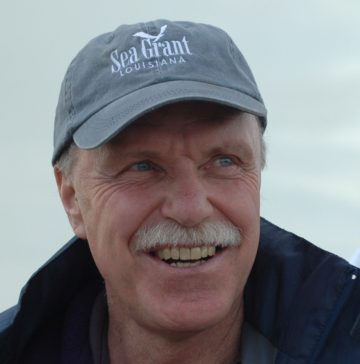 I would like to thank Greenpeace for offering this opportunity to advertise our research and its results. Greenpeace is unable to attack the science I and my collaborators do; science that threatens their repeated assertions that overfishing is universal and that the oceans are being emptied. On the contrary it is clear that where effective fisheries management is applied, stocks are increasing not declining, and this is true in North American and Europe as well as a number of other places. Overfishing certainly continues to be a problem in the Mediterranean, much of Asia and Africa. The timing of Greenpeace’s attack is not random. In two weeks I will receive the International Fisheries Science Prize at the World Fisheries Congress. http://international.fisheries.org/requestfor-nominations-for-the-2016-international-fisheries-science-prize/ This prize is awarded every four years by fisheries science organizations from a number of countries including the U.S., Australia and Japan. In my plenary address I will be showing where overfishing is declining or largely eliminated, as well as where it remains a problem. This is a message Greenpeace seeks to discredit. Instead of focusing on the science, Greenpeace has alleged that I failed to disclose “large amounts of money from the fishing industry and other corporate interests.” Read the rest here 12:43
I would like to thank Greenpeace for offering this opportunity to advertise our research and its results. Greenpeace is unable to attack the science I and my collaborators do; science that threatens their repeated assertions that overfishing is universal and that the oceans are being emptied. On the contrary it is clear that where effective fisheries management is applied, stocks are increasing not declining, and this is true in North American and Europe as well as a number of other places. Overfishing certainly continues to be a problem in the Mediterranean, much of Asia and Africa. The timing of Greenpeace’s attack is not random. In two weeks I will receive the International Fisheries Science Prize at the World Fisheries Congress. http://international.fisheries.org/requestfor-nominations-for-the-2016-international-fisheries-science-prize/ This prize is awarded every four years by fisheries science organizations from a number of countries including the U.S., Australia and Japan. In my plenary address I will be showing where overfishing is declining or largely eliminated, as well as where it remains a problem. This is a message Greenpeace seeks to discredit. Instead of focusing on the science, Greenpeace has alleged that I failed to disclose “large amounts of money from the fishing industry and other corporate interests.” Read the rest here 12:43
Greenpeace attacks University of Washington fishery scientist Ray Hilborn
 Ray Hilborn, a prominent University of Washington fishery scientist, is under attack from Greenpeace for sometimes leaving out mention of industry funding he receives in articles published in academic journals and elsewhere.In a letter sent Wednesday to university President Ana Mari Cauce, Greenpeace filed a complaint against Hilborn’s research practices, and asked for an investigation. Hilborn, over the years, has been a critic of Greenpeace as well as other environmental groups and researchers he accuses of overstating the impacts of fishing on marine resources. In the letter to Cauce, Greenpeace unleashed a broadside against the scientist. Greenpeace is attempting to label Hilborn an “overfishing denier,” comparing the professor to so-called climate-change deniers who are a minority in a scientific community that overwhelmingly accepts that fossil-fuel combustion contributes to global warming. Read the rest here 07:45
Ray Hilborn, a prominent University of Washington fishery scientist, is under attack from Greenpeace for sometimes leaving out mention of industry funding he receives in articles published in academic journals and elsewhere.In a letter sent Wednesday to university President Ana Mari Cauce, Greenpeace filed a complaint against Hilborn’s research practices, and asked for an investigation. Hilborn, over the years, has been a critic of Greenpeace as well as other environmental groups and researchers he accuses of overstating the impacts of fishing on marine resources. In the letter to Cauce, Greenpeace unleashed a broadside against the scientist. Greenpeace is attempting to label Hilborn an “overfishing denier,” comparing the professor to so-called climate-change deniers who are a minority in a scientific community that overwhelmingly accepts that fossil-fuel combustion contributes to global warming. Read the rest here 07:45
Greenpeace claims on coral refuted by NOAA’s more accurate technology
 The study was conducted to help inform the North Pacific Fisheries Management Council (NPFMC) of the state of coral in the Pribilof Canyon in the Bering Sea off the coast of Alaska and whether it was threatened by pollock fishing in the area, before they made their decision earlier this month to continue to allow fishing there. “[During NOAA’s] camera study, we scattered camera drops everywhere along the slope, we weren’t [focused on] any location, to map where corals are found. We sent cameras down 250 times [in one month], compared to the Greenpeace study, [which sent] 30,” Sigler said. Read the rest here 14:46
The study was conducted to help inform the North Pacific Fisheries Management Council (NPFMC) of the state of coral in the Pribilof Canyon in the Bering Sea off the coast of Alaska and whether it was threatened by pollock fishing in the area, before they made their decision earlier this month to continue to allow fishing there. “[During NOAA’s] camera study, we scattered camera drops everywhere along the slope, we weren’t [focused on] any location, to map where corals are found. We sent cameras down 250 times [in one month], compared to the Greenpeace study, [which sent] 30,” Sigler said. Read the rest here 14:46
The Donors Behind Greenpeace’s Ridiculous Ideas About Seafood Sustainability
 It’s from 2013, but, some things never change. Greenpeace relies on major donations from distinguished foundations like Tides and Packard, groups that use florid language to set forth high-minded goals. But Greenpeace’s unserious and self-indulgent actions rarely live up to their sponsors’ idealistic rhetoric. Tides was founded by philanthropist Drummond Pike out of “a need to facilitate the giving of philanthropists who were concerned with building a better future for individuals and communities all over the world.” How? Read the rest and watch here! 15:53
It’s from 2013, but, some things never change. Greenpeace relies on major donations from distinguished foundations like Tides and Packard, groups that use florid language to set forth high-minded goals. But Greenpeace’s unserious and self-indulgent actions rarely live up to their sponsors’ idealistic rhetoric. Tides was founded by philanthropist Drummond Pike out of “a need to facilitate the giving of philanthropists who were concerned with building a better future for individuals and communities all over the world.” How? Read the rest and watch here! 15:53
Repackaged, Warmed-Over PR Ploys From Greenpeace: Different Hashtag, Same Scam
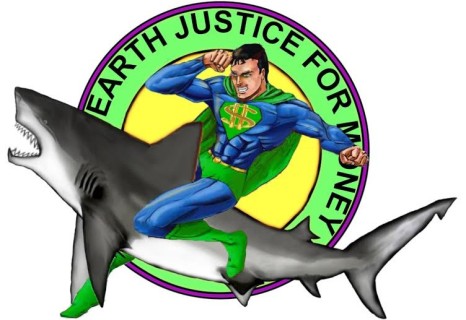 How many times can Greenpeace recycle the same old publicity stunts before they finally exhaust the gullibility of the news media? That seems to be the wager behind the global fundraising organization’s announcement of its latest manufactured attack on the seafood industry. In a press release Greenpeace executive John Hocevar—who lacks real-world expertise in fisheries management specifically and commercial enterprise generally—lists off imagined crimes against sustainability committed by the tuna industry and ominously warns “there is no future” for providing tuna to consumers. He threatens “a global pressure campaign” unless “the entire tuna industry” switches to fishing practices that he prefers. Pole and Line! Read the rest here 15:59
How many times can Greenpeace recycle the same old publicity stunts before they finally exhaust the gullibility of the news media? That seems to be the wager behind the global fundraising organization’s announcement of its latest manufactured attack on the seafood industry. In a press release Greenpeace executive John Hocevar—who lacks real-world expertise in fisheries management specifically and commercial enterprise generally—lists off imagined crimes against sustainability committed by the tuna industry and ominously warns “there is no future” for providing tuna to consumers. He threatens “a global pressure campaign” unless “the entire tuna industry” switches to fishing practices that he prefers. Pole and Line! Read the rest here 15:59
Judge rules against Oceana, Greenpeace in Stellar sea lion lawsuit over increased Aleutians fishing
 A US judge ruled against the US arms of Oceana and Greenpeace in a lawsuit in which the NGOs sought declaratory and injunctive relief against the National Marine Fisheries Service (NMFS), US Department of Commerce, and others, challenging recent authorization of increased industrial fishing in the western and central Aleutian Islands. Oceana and Greenpeace argued the defendants, groups involved in the federal groundfish fishery, violate the Endangered Species Act (ESA), the National Environmental Policy Act (NEPA), and the Administrative Procedure Act (APA). Read the rest here 18:17
A US judge ruled against the US arms of Oceana and Greenpeace in a lawsuit in which the NGOs sought declaratory and injunctive relief against the National Marine Fisheries Service (NMFS), US Department of Commerce, and others, challenging recent authorization of increased industrial fishing in the western and central Aleutian Islands. Oceana and Greenpeace argued the defendants, groups involved in the federal groundfish fishery, violate the Endangered Species Act (ESA), the National Environmental Policy Act (NEPA), and the Administrative Procedure Act (APA). Read the rest here 18:17
When it was time to talk about commercial seafood The New York Times didn’t call the seafood community, it called Greenpeace.
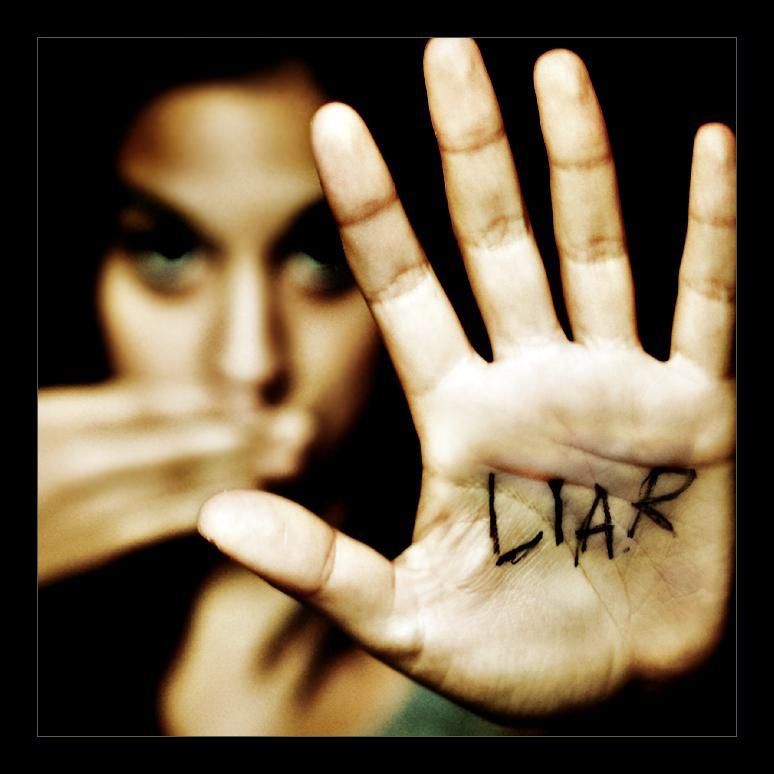 There is a rich irony that comes with Greenpeace lecturing anyone on “standards of responsibility.” The group that recently trampled on Peru’s famed Nazca lines, a stunt that “scarred one of the country’s most treasured national symbols,” uses this forum to attack commercial fishing with its usual brand of unchecked hyperbole. Far from “ruining” the oceans, the seafood community not only sets high standards it drives adherence to those standards and pushes for the innovations that will be the future of fishing. Read the rest here 10:47
There is a rich irony that comes with Greenpeace lecturing anyone on “standards of responsibility.” The group that recently trampled on Peru’s famed Nazca lines, a stunt that “scarred one of the country’s most treasured national symbols,” uses this forum to attack commercial fishing with its usual brand of unchecked hyperbole. Far from “ruining” the oceans, the seafood community not only sets high standards it drives adherence to those standards and pushes for the innovations that will be the future of fishing. Read the rest here 10:47
Greenpeace Pushes Annual Fundraising Tool
 Greenpeace is touting the latest in its long line of opaque, subjective, and hopelessly flawed “reports” on retail seafood. This year’s model may have lost the juvenile aesthetic and top hat donning cartoon fish of previous iterations, but the substance—or lack thereof—remains much the same. It is still first and foremost a fundraising tool and evidence of that can be found in its erratic methodology and narrative. Read the rest here 16:20
Greenpeace is touting the latest in its long line of opaque, subjective, and hopelessly flawed “reports” on retail seafood. This year’s model may have lost the juvenile aesthetic and top hat donning cartoon fish of previous iterations, but the substance—or lack thereof—remains much the same. It is still first and foremost a fundraising tool and evidence of that can be found in its erratic methodology and narrative. Read the rest here 16:20
Dear Greenpeace USA, We are in receipt of your petition, and are responding,,,

Wrecking the Planet, one campaign at a time!
We are in receipt of your petition, and are responding on behalf of member companies Bumble Bee, Chicken of the Sea, and StarKist. We’ve reviewed your petition and attached letter and have found several inaccurate aspects and outright misinformation that we would appreciate you address. While we always welcome feedback from consumers, it does concern us that some of the petition’s signatories appear to come from communities of questionable provenance like “Jerrabomberra, North Carolina”. It is our sincere hope that you have vetted and authenticated,,, Read the rest her 20:01
Greenpeace-friendly Boston Globe Botches Tuna Report
 From the Letter-Another symptom of how Ms. Zwirn indulges Greenpeace is that they are presented with virtually no skepticism or scrutiny — not on their ideology, nor their methodology, nor their expertise, nor the feasibility or consequences of the demands they make. Here are some easily confirmed facts, for instance, that might have been shared with readers: The methodology Greenpeace uses is entirely subjective, kept confidential, and unverifiable. They have precisely zero experience in fisheries management and the “seafood project leader” Ms. Zwirn cites repeatedly has actually spent his career in labor organizing, and joined Greenpeace only recently. Read the rest here 20:38
From the Letter-Another symptom of how Ms. Zwirn indulges Greenpeace is that they are presented with virtually no skepticism or scrutiny — not on their ideology, nor their methodology, nor their expertise, nor the feasibility or consequences of the demands they make. Here are some easily confirmed facts, for instance, that might have been shared with readers: The methodology Greenpeace uses is entirely subjective, kept confidential, and unverifiable. They have precisely zero experience in fisheries management and the “seafood project leader” Ms. Zwirn cites repeatedly has actually spent his career in labor organizing, and joined Greenpeace only recently. Read the rest here 20:38
Greenpeace says Marine Stewardship Council is Living in Fisheries Fantasyland!
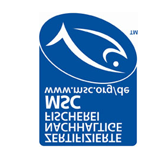 Imagine if you’re sick or injured and your doctor gives you the ‘all clear’ while still developing your treatment plan. You’d get a new doctor, right? Well, the latest tuna fishery recommended for Marine Stewardship Council (MSC) certification could be given the blue fish tick based on the same faulty logic. There are plans being developed to improve the fishery, but, so far, little evidence of action or results. The certification covers five purse seine vessels currently fishing for skipjack, yellowfin and bigeye tuna in the Indian Ocean,,, Read the rest here 16:04
Imagine if you’re sick or injured and your doctor gives you the ‘all clear’ while still developing your treatment plan. You’d get a new doctor, right? Well, the latest tuna fishery recommended for Marine Stewardship Council (MSC) certification could be given the blue fish tick based on the same faulty logic. There are plans being developed to improve the fishery, but, so far, little evidence of action or results. The certification covers five purse seine vessels currently fishing for skipjack, yellowfin and bigeye tuna in the Indian Ocean,,, Read the rest here 16:04
Greenpeace wins permission to take UK government to court over fish quotas
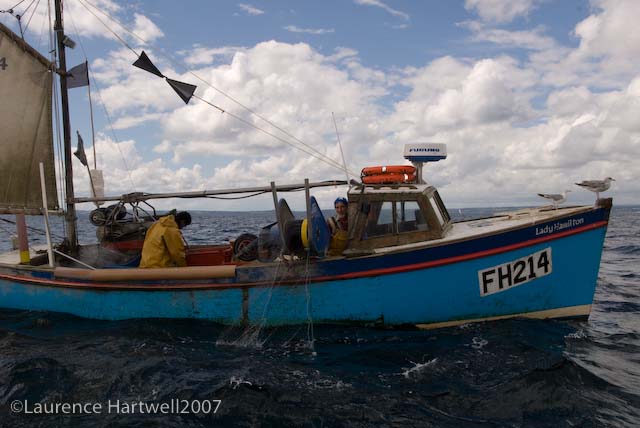 The UK High Court has given the green light for a full judicial review into whether the UK fishing quota allocation system is unlawful under new European law. The government has given out fishing quota in largely the same way since the mid-90s. About 95% of the fishing quota is awarded to the larger end of the fleet, most notably domestic and foreign controlled industrial fishing businesses – such as the vessel Cornelis Vrolijk – which we previously exposed. It’s symbolic of just how broken the system is. (Breaks in text are links that open in new windows) Read the rest here 21:52
The UK High Court has given the green light for a full judicial review into whether the UK fishing quota allocation system is unlawful under new European law. The government has given out fishing quota in largely the same way since the mid-90s. About 95% of the fishing quota is awarded to the larger end of the fleet, most notably domestic and foreign controlled industrial fishing businesses – such as the vessel Cornelis Vrolijk – which we previously exposed. It’s symbolic of just how broken the system is. (Breaks in text are links that open in new windows) Read the rest here 21:52Another Greenpeace Publicity Stunt! How’s your tuna ranked?
 There are lists for everything nowadays — and Greenpeace has a doozy for environmentally-conscious canned tuna lovers. The activist group on Monday released a ranking of 14 brands that examines “fundamental sustainability standards.” It found that three of the most popular brands, representing 80% of the American tuna mark, among the worst offenders: Bumble Bee, Chicken of the Sea and StarKist. Read the rest here 09:43
There are lists for everything nowadays — and Greenpeace has a doozy for environmentally-conscious canned tuna lovers. The activist group on Monday released a ranking of 14 brands that examines “fundamental sustainability standards.” It found that three of the most popular brands, representing 80% of the American tuna mark, among the worst offenders: Bumble Bee, Chicken of the Sea and StarKist. Read the rest here 09:43
Greenpeace’s cynical toytown fantasy – Fishing Body Rejects Basis for Greenpeace’s Divisive Court Action
 “Despite Greenpeace’s claims that they champion small boat fishermen, they have once again failed to think through the practical implications of what they are proposing. The UK’s need for a diverse fleet of large, medium and small vessels to take advantage of all its fishing opportunities is vital to the industry’s interdependence in supporting port infrastructures and ensuring continuation of supply.” Read the rest here 12:24
“Despite Greenpeace’s claims that they champion small boat fishermen, they have once again failed to think through the practical implications of what they are proposing. The UK’s need for a diverse fleet of large, medium and small vessels to take advantage of all its fishing opportunities is vital to the industry’s interdependence in supporting port infrastructures and ensuring continuation of supply.” Read the rest here 12:24
Greenpeace comes to the aid of Britain’s small fishing vessels – Lucky bastards!
 There may be plenty more fish in the sea according to some, but local fishermen are banned from catching them. The UK is sending many fishermen into bankruptcy by only offering them a fraction of the nation’s fishing quota, according to Greenpeace who on Friday, launched legal action against the government at the High Court. Sarah North, Greenpeace Head of Oceans campaign, Read the rest here 17:18
There may be plenty more fish in the sea according to some, but local fishermen are banned from catching them. The UK is sending many fishermen into bankruptcy by only offering them a fraction of the nation’s fishing quota, according to Greenpeace who on Friday, launched legal action against the government at the High Court. Sarah North, Greenpeace Head of Oceans campaign, Read the rest here 17:18
Etched in Stone – Oceana and Greenpeace think Best Available Science circa 1990 shouldn’t change! Stellar Sea Lion
 Hundreds of endangered Steller sea lions may die from loss of prey and habitat if the federal government allows more industrial fishing in the Aleutian Islands, environmentalists claim in court. Moreover, the groups say, the biological opinion issued by the National Marine Fisheries Service in April 2014 was condemned by many of its own scientists as “fundamentally flawed” because it relied on incomplete and inadequate Steller sea lion telemetry and sighting data. Read the rest here 10:13
Hundreds of endangered Steller sea lions may die from loss of prey and habitat if the federal government allows more industrial fishing in the Aleutian Islands, environmentalists claim in court. Moreover, the groups say, the biological opinion issued by the National Marine Fisheries Service in April 2014 was condemned by many of its own scientists as “fundamentally flawed” because it relied on incomplete and inadequate Steller sea lion telemetry and sighting data. Read the rest here 10:13
Arrogance Ignorance and Greenpeace
 Just in case you have not heard the story – here is a brief summary. In Peru at night a group of Greenpeace activists drove a jeep up to one of the ancient Nasca outlines then trampled over the area laying out a piece of Greenpeace propaganda. According to the outraged Peruvian government ( as well as assorted other experts) the group did irreparable damage to the area. Read the rest here, and check out the wind power category! 09:57
Just in case you have not heard the story – here is a brief summary. In Peru at night a group of Greenpeace activists drove a jeep up to one of the ancient Nasca outlines then trampled over the area laying out a piece of Greenpeace propaganda. According to the outraged Peruvian government ( as well as assorted other experts) the group did irreparable damage to the area. Read the rest here, and check out the wind power category! 09:57Greenpeace and Cornish fishermen lobby George Eustice MP over unfair fishing quota
 Greenpeace volunteers and Cornish fishermen will be meeting George Eustice on Saturday morning at his constituency office to express their concern over the “unfair fishing quota system”. They are handing in a petition from over 2,000 people from or near his constituency of Camborne, Redruth and Hale. Read the rest here 15:44
Greenpeace volunteers and Cornish fishermen will be meeting George Eustice on Saturday morning at his constituency office to express their concern over the “unfair fishing quota system”. They are handing in a petition from over 2,000 people from or near his constituency of Camborne, Redruth and Hale. Read the rest here 15:44






